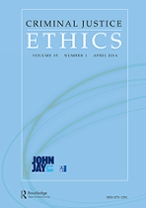Very few scholars discuss the moral basis of the right of persons accused of crimes to be supplied with attorneys if they cannot afford them. More discussion of the topic is needed, in particular because political theorists who prefer a minimal state deny that indigent persons have such a moral right. This article addresses their contentions by developing three arguments for supplying poor persons accused of crimes with defense attorneys. First, doing so will prevent state officials from becoming emboldened in their dealings with the poor, such that they might come to pose a threat to the non-poor. Second, poor persons who believe that the state does not treat them fairly will have reduced incentives to abide by the law, which will, in turn, increase the cost of the minimal state. Third, the better off should show solidarity with the poor in demanding that the minimal state honor all citizens’ rights to life, liberty, and property. Crucial to these arguments is the claim that a right of indigent defense is unlike other welfare rights in that securing it protects other basic moral rights that minimal statists acknowledge.
Criminal Justice Ethics: The Minimal State and Indigent Defense

- Publication Date
2016 - Author
- Richard Lippke
- Website
- View publication information


 The College of Arts
The College of Arts